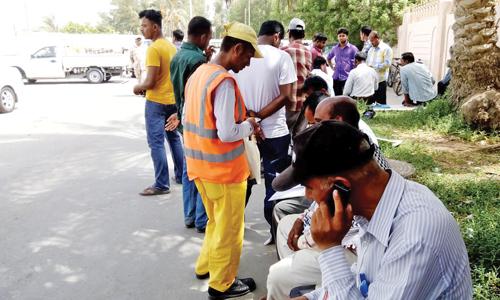Rectify violation with new employer: LMRA
Illegal employees who wish to stay in the country and transfer their residency to a new employer should rectify their situations in coordination with the new employers, said Labour Market Regulatory Authority (LMRA) CEO Ausamah Al Absi, while speaking of the success of the amnesty programme.
“In this case, the new employer is requested to apply electronically through the authority, without the need to apply for an extension period from NPRA. The employer is also required to submit a form filled by the employee they wish to recruit to the authority. This process should be included with the electronic application that is submitted electronically to the authority,” Al Absi explained.
LMRA launched the amnesty period for illegal residents during the first week of July and the campaign will continue until December 31.
The decision was accompanied by a huge campaign to raise awareness among expats, including the distribution of thousands of leaflets in 15 different languages among them, in addition to radio ads in Arabic, English and Hindi languages, with the aim of reaching out to each illegal employee of any nationality in Bahrain.
Around one million SMSs were sent in cooperation with the different telecommunication companies in the country.
The authority also held meetings with the ambassadors of employment-exporting countries, to explain the details of the amnesty period.
Al Absi reaffirmed that “stern legal procedures would be taken against violators, without exceptions.”
At the same time he called all violating residents to benefit from this opportunity and rectify their residency situations in the Kingdom.
The authority warned earlier that “Under normal circumstances, any expatriate caught working illegally faces deportation, while the company itself will be fined a minimum of BD1,000 for every “irregular” worker. Workers caught by police can face fines that start at BD100 and deportation.”
Related Posts

